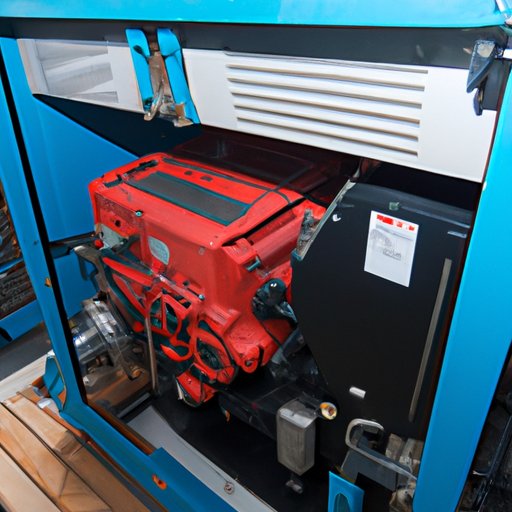
Introduction
Having a generator for emergency preparedness is essential. In this article, we will discuss how to hook up a generator to your home and address common problems and solutions that you may encounter. We will also provide advice on how to choose the right generator for your specific needs and emphasize the importance of having one during emergencies.
Step-by-Step Guide
First, before hooking up your generator to your home, make sure that it is properly grounded. To begin the process of hooking up a generator to your home, follow these basic steps:
- Choose the right generator
- Select the proper transfer switch
- Install the generator inlet plug
- Connect the wiring
We recommend that you read the manufacturer’s instructions for more specific details on each step. Additionally, make sure that you have all the necessary equipment and tools.
Technical Approach
Generators come in different types, and it is important to understand each type’s features to choose the right one. There are portable generators and standby generators. Also, you should be familiar with electrical wiring basics, including matching the generator’s voltage and phase to your home’s electrical system. Doing this will ensure that your generator works correctly and efficiently.
Common Problems and Solutions
Some common problems that you may encounter when hooking up a generator to your home include overloading or backfeeding. Overloading occurs when you try to run too many appliances at once, and backfeeding is when electricity flows in the opposite direction from which it should. You can avoid these issues by correctly installing a transfer switch, which will direct electricity from your generator to your home’s electrical system and prevent backfeeding. Proper maintenance of your generator can also help prevent future problems.
Emergency Preparedness
Having a generator during emergencies, such as power outages, can be life-saving. In an emergency situation, hooking up a generator quickly and safely is essential. It is important to choose a generator that will meet your emergency needs, such as powering your refrigerator or medical devices. Make sure that you have extra gasoline stored for your generator and have a clear plan in case of an emergency.
Types of Generators
Portable generators and standby generators have their pros and cons. Portable generators are less expensive, and you can move them easily from one location to another. On the other hand, standby generators are permanently fixed and can automatically turn on when there is a power outage. Before choosing a generator, consider your specific needs and consult with experts for advice.
Outsourcing
If you are not familiar with the process of hooking up a generator to your home, you may consider hiring a certified professional to install your generator. A reputable contractor can ensure that your generator is properly installed and will run efficiently in an emergency situation. Before hiring a contractor, make sure that they have experience in generator installation and are certified.
Conclusion
Hooking up a generator to your home is not complicated with the right information and tools. Always prioritize safety and properly maintain your generator to avoid problems in the future. Consider your specific needs when choosing a generator and have a clear plan during emergencies. Preparing for emergencies by hooking up a generator to your home is a responsible and important step.




